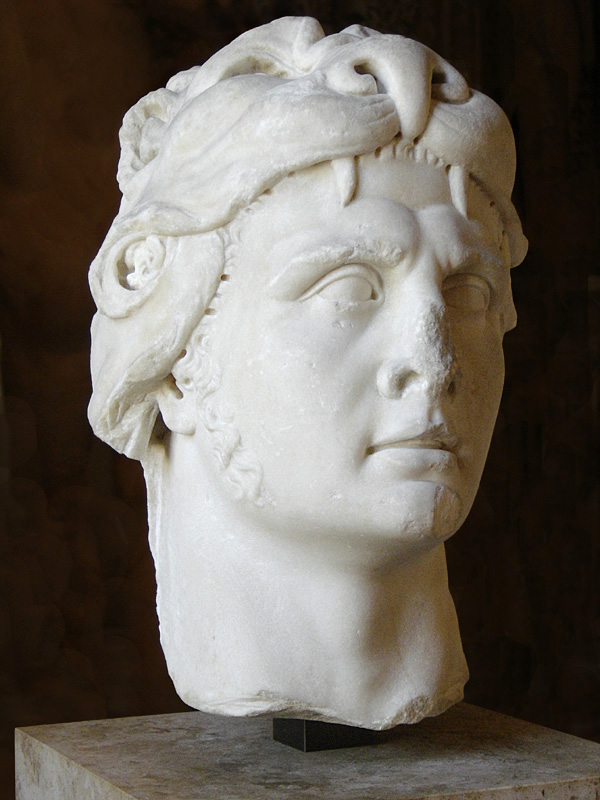Mithridates VI
The King of Pontus, he fought with Rome over the expansion of his kingdom’s borders versus the borders of the Roman Republic.
 Mithridates was raised in the Kingdom of Pontus. After his father was poisoned in 120 BCE, his mother Laodice VI ruled in place of her son, who was too young at the time to rule on his own. Mithridates fled from his mother and is said to have lived in the wilderness. During this time, he is said to have developed an immunity to poisons.
Mithridates was raised in the Kingdom of Pontus. After his father was poisoned in 120 BCE, his mother Laodice VI ruled in place of her son, who was too young at the time to rule on his own. Mithridates fled from his mother and is said to have lived in the wilderness. During this time, he is said to have developed an immunity to poisons.
Though his mother favored his brother, Mithridates Chrestus, he returned from the wilderness and removed both of them from the throne so that he could rise as sole ruler. He wished to make the Kingdom of Pontus the dominant power in the Black Sea and Anatolia. Mithridates entered into conflict with Nicomedes, a friend of the Romans, over Cappadocia. The Romans interfered twice, thus demonstrating that the would have to interact with the Romans, if he wished to continue to expand his kingdom.
In 89 BCE, a combination of Roman forces and troops from Nicomedes attempted to invade the Kingdom of Pontus. Mithridates diverted these forces. The next year, Mithridates executed a massacre of Roman and Italian settlers in several towns across Asia Minor, thus eliminating the Roman presence in the area. An estimated number of 80,000 to 150,000 men, women, and children were murdered in one night. This event is referred to as the Asiatic Vespers and marked the beginning of the First Mithridatic War.
This war lasted between 88 and 84 BCE. Lucius Cornelius Sulla forced Mithridates VI out of Greece. When Lucius Licinius Murena, who was left in the charge of the Roman forces in Anatolia, Murena attacked Mithridates in 83 BCE. Thus the Second Mithridatic War began and lasted from 83 to 81 BCE. The Third - and last - Mithridatic War began in 73 BCE when Rome attempted to annex Bithynia, which Nicomedes had left to Rome in his will. This war lasted for ten years. Though Pompey defeated him in 66 BCE, Mithridates did not cease to be a factor until his son, Pharnaces II of Pontus, rebelled against him and Mithridates committed suicide in 63 BCE.
→ Attalus Entry: Mithridates VI Eupator6
→ Smith Entry
→ Wikipedia Entry